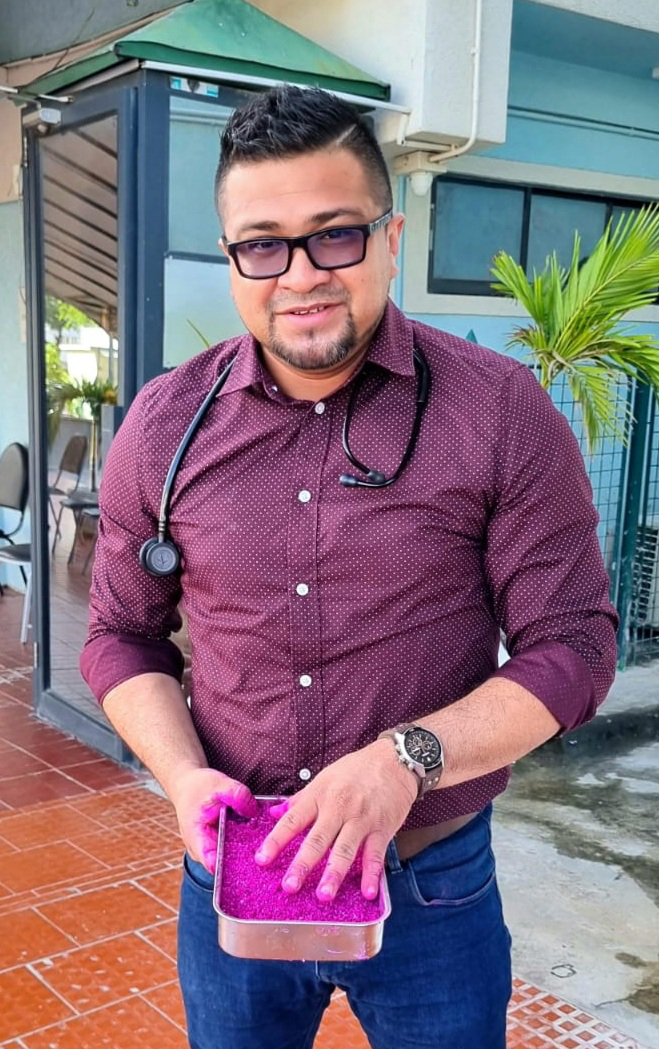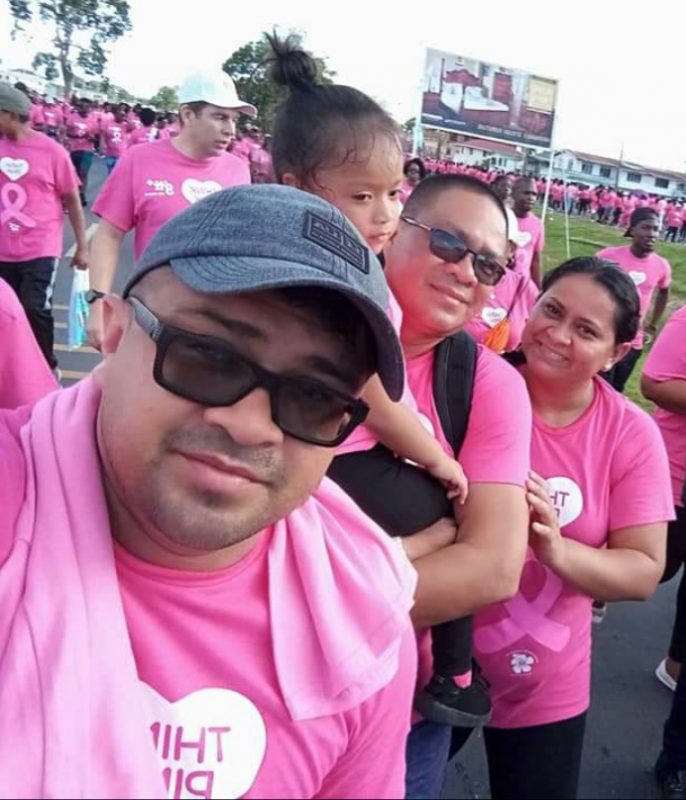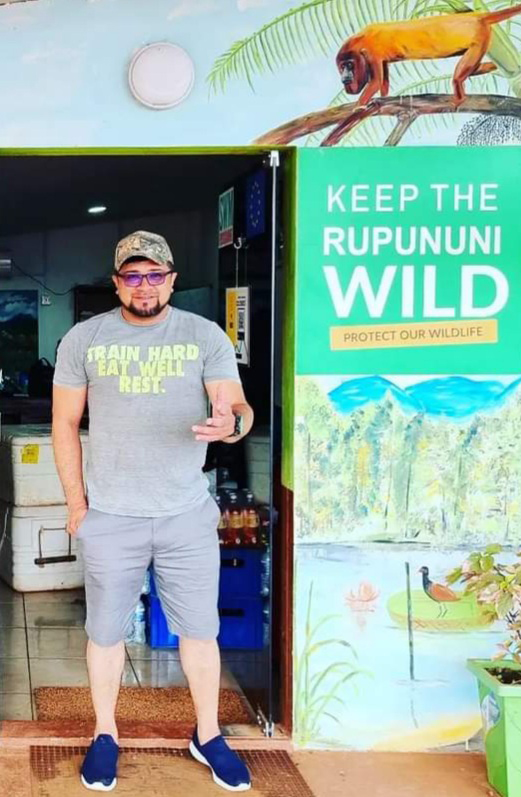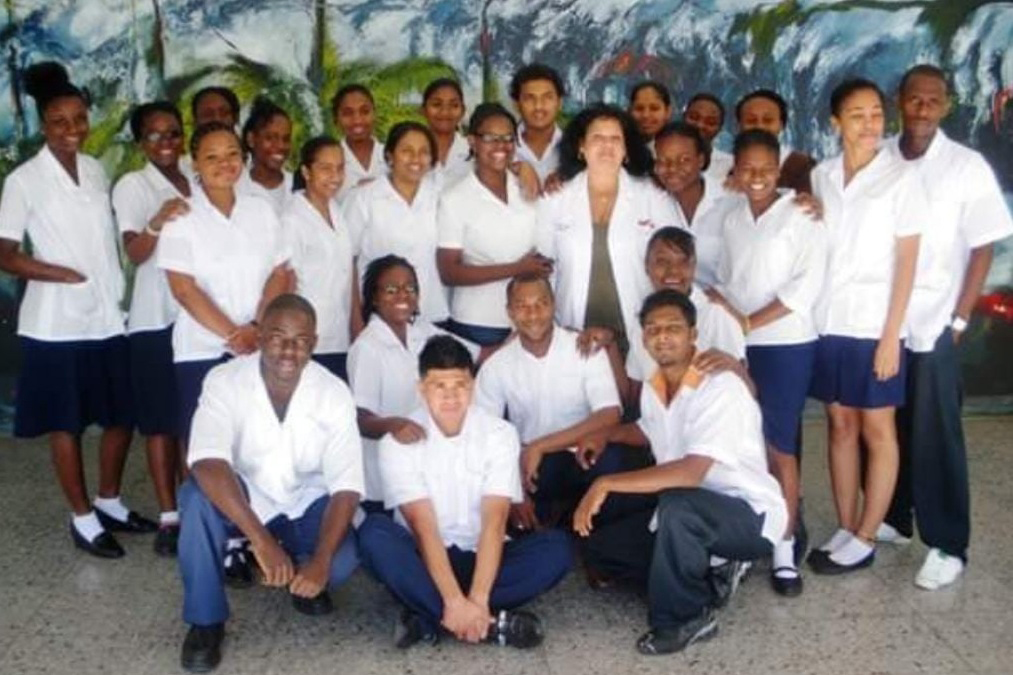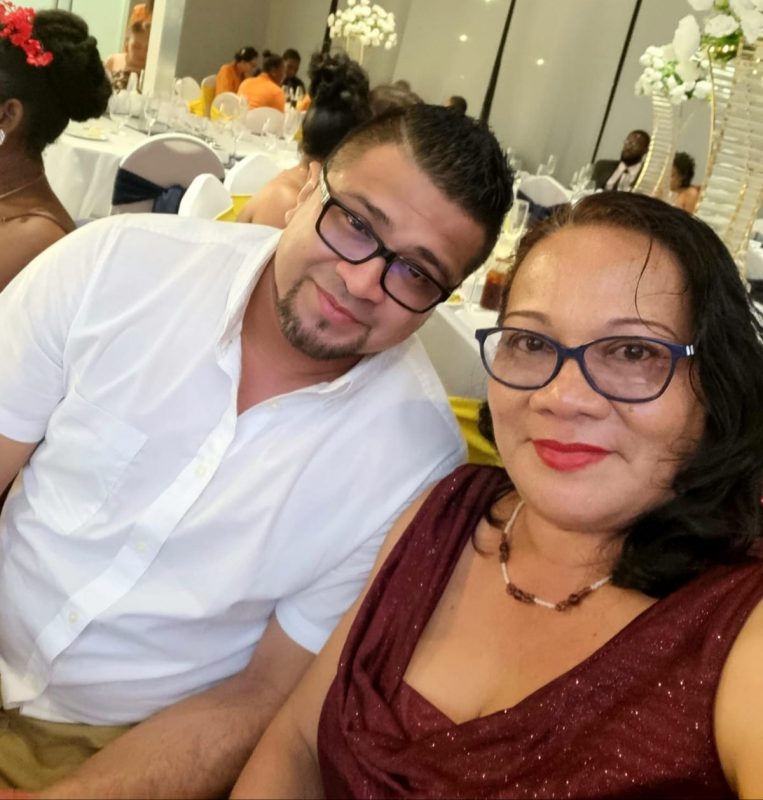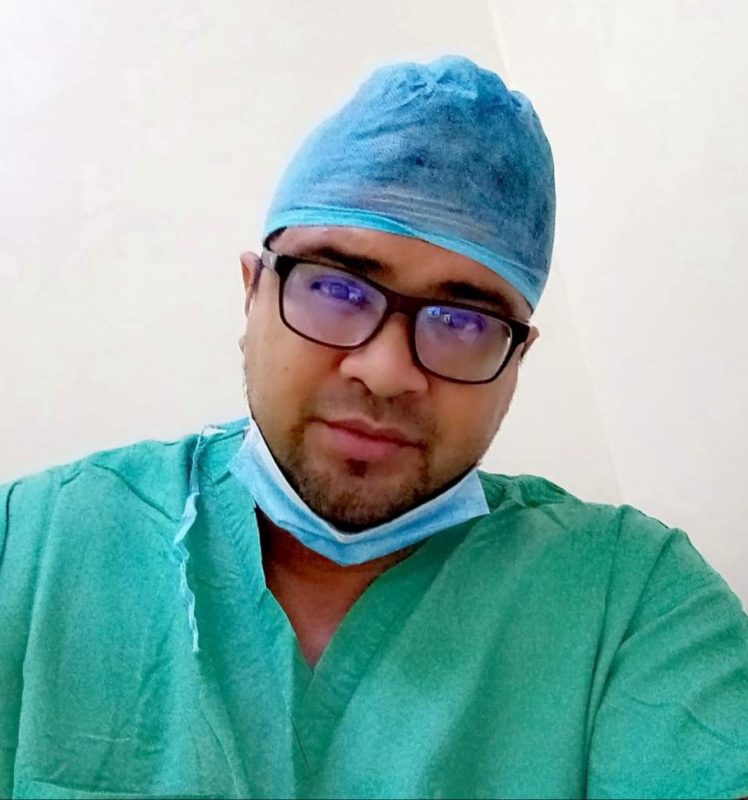When Alex D’Aguiar left secondary school at 15 years old, he never imagined himself achieving his childhood ambition of becoming a veterinarian, much less a medical doctor because he had not written the necessary science subjects at the Caribbean Secondary Education Certificate (CSEC) examinations.
He also did not write a foreign language at CSEC even though his alma mater taught both French and Spanish. On leaving his alma mater, Marian Academy, he enrolled at the University of Guyana (UG) to pursue a diploma in public management.
“Now I see the benefits of learning a foreign language or foreign languages, especially Spanish in the case of our country,” the now 36-year-old obstetrician and gynaecologist (OB/GYN) said. “Learn as many languages as you can. We’re strategically located in South America and our economy is growing rapidly. We have an influx of citizens from many countries now entering Guyana because of the oil industry. Just learning other languages may open so many other doors to you.”
At present, Dr D’Aguiar works with high-risk OB/GYN women in 13 health centres along the East Coast Demerara corridor from Better Hope to Mahaica.
Born and bred in Lethem, Region Nine (Upper Essequibo-Upper Takutu), his late father Harold D’Aguiar was a businessman and the first and youngest regional chairman of Region Nine to date. He was 23 at the time of his appointment. Both of Dr D’Aguiar’s parents were teachers before his father got into politics.
His mother Jacqueline D’Aguiar is of the Wapishana people and his father was of Portuguese and Brazilian ancestry. His paternal grandmother was Brazilian and his paternal grandfather was one of three brothers who came from Madeira, settled for a while in Hopetown, Berbice and got involved in ranching. In the early 1950s they joined other ranchers and moved to Rupununi.
D’Aguiar wrote the common entrance examination at St Ignatius Primary and secured a place at St Joseph High School. However, his parents, both Roman Catholics who believed in a Catholic education, opted to send him to Marian Academy which opened its doors for the first time when he started his secondary education.
“I was in the first batch when the school started in 1998… My older sister and older brother were already working, studying in Georgetown when I started school and I lived with them,” he recalled.
As a teenager growing up away from his parents, he was forced to become independent and responsible from a young age. He did not experience a culture shock living in Georgetown as he had travelled to the city and other places before.
In addition, he said, “Though I grew up in Lethem, we had a ranch so I was exposed to hunting, fishing and the outdoors.
“Every holiday I went to Lethem to spend time with my parents. When I went home for the holidays my dad and I would go sport fishing. It is now a hobby of mine. We either fished in Rupununi or we went to Brazil. We used that time to bond over current affairs, geo-political issues, international issues among others… We’d go to a game resort, fish and then release the catches back into the river. At a very young age, I learned about conservation, how much the environment meant and that there is no longevity to the environment. It taught me the conservation approach and yet be able to have fun.”
Growing up he always liked animals and his childhood dream was to become a vet. However, while he was at Marian Academy, classes were not yet streamed into particular subject areas.
“They just offered subjects. After I graduated with nine CSEC subjects, I went straight to the University of Guyana and I did a diploma in public management graduating from UG at 17 years old,” he said.
He then worked part time at the Guyana Elections Commis-sion as a civic voters’ assistant with a focus on voters’ education in the North Georgetown District which covered from Crown Dam to South Road.
“That was quite a task. I was just 17 years when I was given that responsibility but it helped me to put practical skills into play. It helped me with public speaking, interacting on a one-and-one basis with people and with organising,” he said.
He subsequently returned to UG to do a bachelor’s degree in international relations, but decided he wanted to do medicine instead. However, without a science background, he decided to do the necessary science subjects at the General Certificate of Education Advanced Level privately. “It took me a full year to successfully complete those subjects,” he recalled.
In 2007 he applied and was successful in his application for a government scholarship to study medicine in Cuba.
“I left at the age of 21 years to study in Cuba for six years. I did my one-year internship in Guyana. I had to learn Spanish first then study medicine in Spanish which was amazing,” he said.
He noted that Marian Aca-demy has produced several doctors. He and Dr Sonya Lord, one of his classmates, are among the first set of doctors. They also studied in Cuba at the same time.
“Sonya and I always visit the school and we are willing to ensure students have accessibility to proper health care,” he said.
D’Aguiar did his pre-med year in the state of Pinar and the medical programme at Universi-dad de Medicina Victoria de Giron in Havana.
“There were a lot of Guyanese students in Cuba. It was challenging at times. However, I think in comparison to others I was much more prepared given the fact that I had moved away from my parents to attend school in Georgetown at an early age. I was used to doing my own laundry, cooking, everything.
Because of that experience it wasn’t hard for me to adapt in Cuba,” he said.
“I had friends who were from Lethem who were at the same university with me and it was comfortable knowing there were familiar faces around. I won’t say we punished for food or anything, but we learnt quite a few things, like to live within our means, to be grateful for what we had or could have afforded. It called for determination, self-belief and dedication.
“As students and going through the medical system, we learned a lot about patriotism and the humanitarian aspect of medicine, some things I’m grateful for.”
His father died during his first year in Cuba and he returned to Guyana for his funeral. “It was difficult to return to Cuba and study but I had to,” he said.
On his return to Guyana in 2013, he did a year of internship at Suddie Public Hospital on the Essequibo Coast. He was the head intern for the batch of medical students there. It was there that he had his first impression about Guyana’s medical system and where the medical field stood.
“We practised medicine in Cuba, a country financially deprived of certain things but their medical system is probably one of the best in the hemisphere. They create their own medicines, they write their own textbooks. Their health care from primary to tertiary is very much developed. They may be lacking in some resources but the structure is very much developed, whether it be health centres, hospitals or specialised hospitals,” he related.
OB/GYN
After completion of his internship and graduating in 2014, D’Aguair was assigned to the Mackenzie and Wismar hospitals. He also made routine visits to Kwakwani. He worked in Linden for three years initially in the emergency department at Mackenzie Hospital. At Mackenzie Hospital he had access to Chinese and Cuban specialists in OB/GYN, took a liking to it and understudied the specialists. After a few months in the emergency department he was transferred to the OB/GYN department.
“At that time, we had no Guyanese specialists there. Being a young doctor, I was eager to learn and to apply the knowledge I had gained. Having access to the specialists offered me a lot in terms of professional growth in the practice and theory in how to manage patients,” he said.
In 2017, he asked to go to Lethem Regional Hospital. “I was excited to go back to my place of birth and my region. You’re entitled to do a year’s hinterland stint… I wanted to go back to Rupununi. In general, I also wanted to serve in as many of the major hospitals in Guyana. Having worked at Suddie and in Linden, the only natural thing for me was to give back that one year at Lethem Hospital,” he said.
He spent two years at Lethem Hospital, starting out as head of the OB/GYN department. He was later given the opportunity to serve in the capacity of administrator/medical superintendent of the hospital.
“I continued to work as a doctor/administrator. I saw the potential of me merging my management background with medicine,” he said.
After six months as administrator/medical superintendent he was appointed regional health officer for Region Nine.
The region is the largest geographically in the country with many advantages and disadvantages. The disadvantages include the topography and distances between the health centres and Lethem Hospital, which makes adequate accessibility to healthcare difficult.. Flooding of the savannahs during the rainy season limits transportation and thus the provision of healthcare when it is also greatly needed.
“Getting supplies to Lethem was not a problem but getting the supplies to health centres in the region was problematic especially during floods. Even if there is an emergency, sometimes you can’t reach the area,” he noted.
He recalled the non-governmental organisation, the Remote Area Medical (RAM) system assisting in enabling Lethem Hospital to provide healthcare in remote areas. “They assisted us many times with medical evacuations, took supplies to these areas and even helped us to conduct our outreach,” he said
Having grown up in Lethem, D’Aguiar was able to relate to the people.
“I saw the need for specialised care to be offered to our Indigenous People in the villages. A lot of people feel that specialised healthcare is only needed on the coast and at major hospitals. A lot of doctors have never travelled out of the coast to see what healthcare is like in the hinterland regions,” he noted.
Nevertheless, he said, he has seen improvements undertaken by the various governments in the provision of healthcare and increased access to health facilities in the region.
Region Nine, he said, offers a lot of services. “As small as Lethem Regional Hospital is, we offered six specialised care when I was there including orthopaedics, internal medicine and gynaecology. It offers more now,” he added.
Region Nine, he said, has produced some of its own specialists who are now working in the region.
“We had this bilateral friendship agreement with hospitals in Boa Vista, Brazil because we had to transfer patients in cases of emergencies. It is much more convenient to take the patient there by ambulance than to air-dash them to Georgetown. By extension, we served a number of Brazilians and Guyanese who live in Brazil. It was interesting to see how Lethem Hospital operates because of its strategic location. We had Venezuelans coming for healthcare,” he related.
“Healthcare there exceeds a simple hospital catering only for the local population. Strategically, we saw that as a region and made that well known. Contingency plans were made, strategic plans on how we would like to see healthcare grow in the region, providing more health centres, expanding specialised services.”
Legacy
The creation of maternal health posts or waiting homes and piloting Lethem Hospital in collaboration with PAHO as a smart hospital are among Dr D’Aguiar’s legacy. To get Lethem Hospital branded a smart hospital, meant he had to work with the staff towards providing more efficient healthcare, training of staff, better use of resources, upgrade of laboratories and the provision of technological advancement.
During his tenure as RHO, the regional health department also began the training of community health workers and nurses in the region.
“Even though I was the RHO, I was still very active in OB/GYN. I focused a lot on maternal and child care. The driving factor in any country or the region’s growth is obviously centred around maternal and child health. My training in public management gave me an advantage from an administrative and managerial point of view,” he said.
Noting that he loves what he does and loves helping people, over the past year he was involved on a voluntary basis with the Guyana Cancer Society’s screening exercises and awareness programmes on breast and cervical cancers in Bartica, Linden and Skeldon.
At present, he is pursuing a master’s degree in public health.
“I’m still in the OB/GYN field with years of experience but obviously I’m leaning towards administration and management. At some point in time I may go back there,” he said.
And noting, too, that the profession is very demanding, he said to relax, “I play football and I travel to Rupununi whenever I can.”
